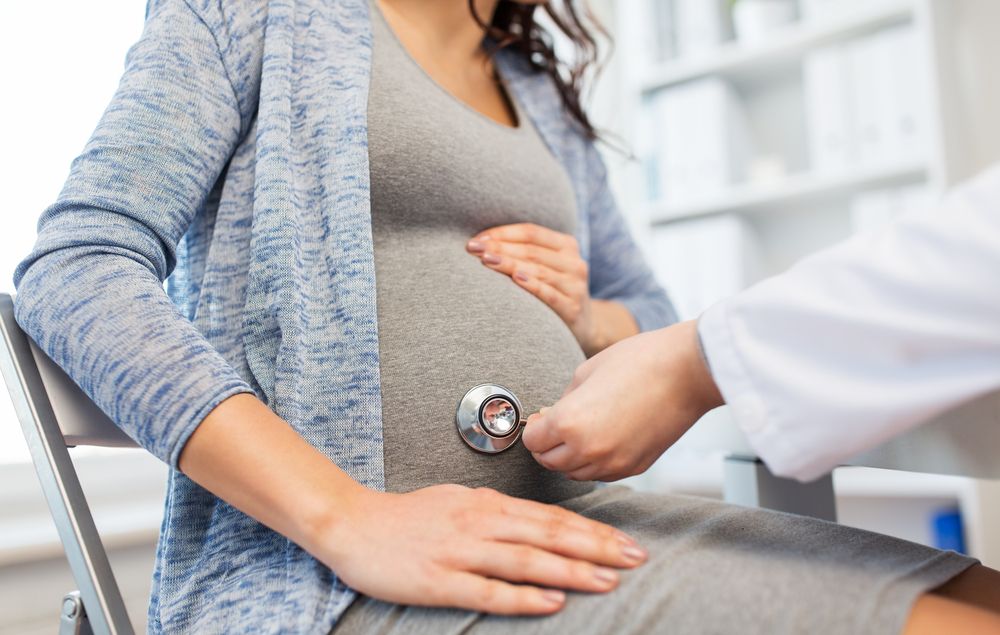Should Pregnant Women be Screened for Thyroid Disease?
Primary care providers, endocrinologists and obstetricians have been challenged with the question of whether to screen all pregnant women for thyroid disease. The debate springs primarily from unknown clinical implications of subclinical thyroid disease during pregnancy. This issue was addressed at ENDO 2019.
(©SydaProductionsShutterStock.com)

For decades, primary care providers, endocrinologists and obstetricians have been challenged with the question of whether to screen all pregnant women for thyroid disease. This issue was addressed at ENDO 2019 on March 26 in New Orleans.
Screening allows providers to identify individuals at an increased risk of thyroid disease, allowing these individuals to be offered treatment to reduce the risks of disease. Most providers agree that overt thyroid disease needs to be identified and treated during pregnancy to prevent adverse pregnancy outcomes. The debate over whether to screen all pregnant women springs primarily from the unknown clinical implications of subclinical thyroid disease during pregnancy.
While several small studies provide evidence that mild thyroid disease may have a negative impact on pregnancy, there haven’t been any large randomized trials to show that finding and treating subclinical thyroid disease will lead to better pregnancy outcomes. Without this evidence, disagreement persists over whether universal screening is worthwhile and cost-effective, leaving providers to make this decision for each of their patients individually.
Alex Stagnaro-Green, M.D., of the University of Illinois, presented the argument in favor of screening all pregnant women for thyroid disease. Kristien Boelaert, M.D., Ph.D., of the University of Birmingham in the United Kingdom, argued against universal screening. The debate was moderated by Davis S. Cooper, M.D., of Johns Hopkins University.
Taking the position that universal screening for thyroid disease during pregnancy should be instituted immediately, Dr. Stagnaro-Green focused on a set of classic screening criteria developed by Wilson and Junger in 1968. These ten criteria for determining whether or not universal screening is appropriate include a high prevalence rate, cost-effectiveness, and whether identifying and treating the disease will decrease adverse outcomes. The Wilson and Junger criteria have been adopted by the World Health Organization.
Dr. Stagnaro-Green said there is clear evidence that overt hypothyroidism and overt hyperthyroidism meet all ten criteria. For example, to demonstrate high prevalence rate, he said that 1.15 percent of pregnant women have underdiagnosed overt hypothyroidism or overt hyperthyroidism. The only disease currently screened for during pregnancy that has a higher prevalence is gestational diabetes. Since screening for overt hypothyroidism and overt hyperthyroidism do meet all the Wilson and Junger criteria, Dr. Stagnaro-Green maintained that the focus on subclinical hypothyroidism is irrelevant to the screening debate. He concluded the evidence in favor of screening is clear despite the lack of information concerning the clinical implications of subclinical thyroid disease on pregnancy outcomes.
Dr. Boelaert argued against universal screening of pregnant woman for thyroid disease. While she agrees there is clear evidence that treating overt thyroid disease during pregnancy results in improved pregnancy outcomes, she emphasized there is no evidence that treatment of subclinical hypothyroidism results in improved outcomes. There is, however, evidence that overzealous treatment of thyroid disease during pregnancy could potentially result in harm, particularly if serum fT4 concentrations become high.
The cost of universal screening was also an area of concern for Dr. Boelaert. Although the cost-effectiveness of universal screening was demonstrated in two randomized trials of mild iodine deficiency, there are additional costs that need to be considered. Overall costs include infrastructure set-up, personnel training, and the burden of potential overdiagnosis and treatment. When combined with the evidence of potential harm, Dr. Boelaert concluded there are too many areas of uncertainty to support the implementation of universal screening. Instead, she supports targeted screening of high-risk pregnant women or those who demonstrate symptoms.
REFERENCES
Cooper D, Stagnaro-Green A, and Boelaert K. “E22. Endocrine Debate: Thyroid Disease in Pregnancy: To Screen, or Not to Screen?” Presented at ENDO 2019 in New Orleanse, LA on March 26, 2019.